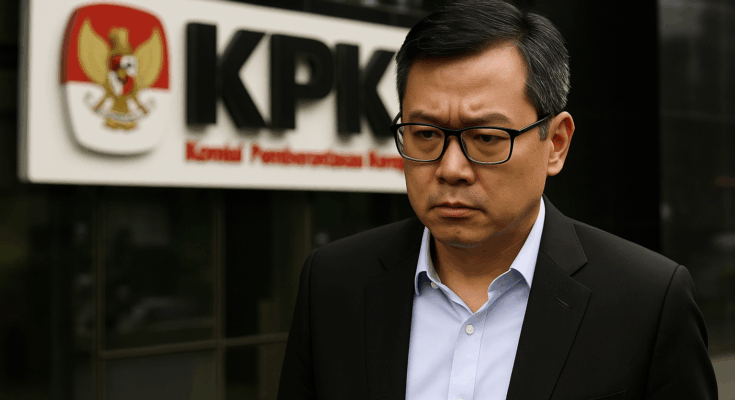In a development raising concerns about transparency and governance in Southeast Asia’s burgeoning crypto space, the CEO of Pintu, a leading Indonesian cryptocurrency exchange, has reportedly failed to appear before anti-corruption investigators in relation to a $132 million acquisition deal. The controversy centers around the acquisition of PT Jembatan Nusantara, a maritime logistics firm, during the 2019–2022 period.
The Indonesian Corruption Eradication Commission (KPK) issued a formal summons to Pintu’s chief executive earlier this month, requesting testimony related to alleged financial irregularities, political favoritism, and misappropriation of investment funds. According to sources close to the matter, the CEO—whose identity is being withheld due to ongoing legal sensitivities—did not respond to the summons and has since been unreachable by phone or legal representatives.
Crypto Meets Corruption: An Industry at a Crossroads
Pintu has long been positioned as one of Indonesia’s flagship crypto companies, offering spot trading, staking, and DeFi access to millions of users through its mobile-first platform. The company raised tens of millions in venture capital and secured a regulatory license from BAPPEBTI (Indonesia’s Commodity Futures Trading Regulatory Agency), granting it legal permission to operate as a crypto exchange.
However, the company’s alleged involvement in the PT Jembatan Nusantara acquisition—a deal that had little to do with crypto or fintech—has confused industry watchers and regulators alike.
“This raises red flags not just about the company, but about how crypto platforms may be used to obscure ownership, move capital, or exert political influence,” said Raymond Tandiono, an independent financial crimes researcher based in Singapore.
The acquisition reportedly involved funds from overseas investors, some of which were funneled through anonymous crypto wallets before being converted into fiat currency and deposited into shell accounts linked to maritime infrastructure companies.
Government and Investor Response
Indonesia’s Finance Ministry released a cautious statement urging cooperation from the accused parties. “We encourage any regulated entity to uphold transparency and comply with lawful investigations,” the statement read. Meanwhile, BAPPEBTI has confirmed that Pintu’s operational license is under review, pending the outcome of the investigation.
Venture capital firms that backed Pintu—including major players from Singapore and Silicon Valley—have thus far remained silent, although several insiders claim internal audits are now underway.
Investor sentiment has already taken a hit. Pintu’s native token, $PTU, fell over 18% in the past 48 hours, with user withdrawals also spiking amid fears of a platform shutdown or asset freeze. Some users have reported delays in transaction processing and fiat conversions, although the platform remains online and accessible at press time.
Broader Implications for Southeast Asia’s Crypto Market
The incident underscores a critical challenge for crypto markets in emerging economies: balancing innovation with regulatory integrity. As Indonesia and its neighbors aim to position themselves as regional blockchain hubs, scandals like this could undermine both public trust and foreign investment.
Experts warn that crypto firms venturing into unrelated sectors without proper governance frameworks are more likely to attract scrutiny—and potential regulatory overhauls.
“We are likely to see tighter financial disclosure requirements and new legislation around cross-industry crypto involvement in Indonesia within the next 6 to 12 months,” said Natasya Anggoro, legal advisor at Jakarta-based fintech law firm Iskandar & Co.
Conclusion
As the probe unfolds, the Pintu case may become a defining moment for Indonesia’s crypto regulatory landscape. For now, the absence of the exchange’s CEO from the legal spotlight is not only raising eyebrows—it’s testing the country’s appetite for enforcing accountability in a fast-moving digital economy.
Until authorities clarify the path forward, investors and industry leaders will be watching closely—and asking tough questions about who’s really behind the scenes.



